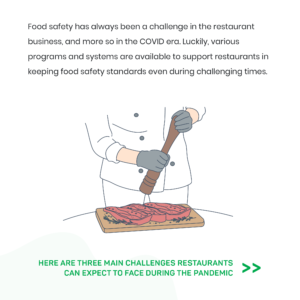
The Future of Hotel Management: Predictions and Innovations
The hotel industry has always been a dynamic and evolving sector. With changing customer expectations, technological advancements, and global events like the COVID-19 pandemic, the future of hotel management is a topic of great interest and importance. In this blog, we’ll explore some predictions and innovations that are likely to shape the future of hotel management.
- Contactless Check-In and Check-Out The pandemic accelerated the adop- tion of contactless technologies in the hotel industry. Mobile apps and digital key cards have become more prevalent, allowing guests to check in and out without direct contact with hotel staff. This trend is likely to continue as guests appreciate the convenience and safety of these solutions.
- Artificial Intelligence (AI) and Machine Learning AI and machine learning are making inroads in hotel management. These technologies can personalize guest experiences, predict room availability, and optimize pricing in real-time. Chatbots and virtual assistants can provide 24/7 customer support, enhancing the overall guest experience.
- Sustainability and Eco-Friendly Practices As environmental concerns grow, hotels are increasingly adopting eco-friendly practices. The future of hotel management will involve reducing energy consumption, minimizing waste, and implementing sustainable building designs. Guests are looking for green certifications and sustainable initiatives when choosing their accommodations.
- Smart Rooms and IoT Integration Smart rooms are becoming more preva- lent, offering guests control over lighting, temperature, and entertainment sys- tems through their smartphones. Internet of Things (IoT) devices can provide valuable data to hotel management, allowing for better understanding of guest preferences and operational efficiency.
- Data-Driven Decision Making Data analytic will play a crucial role in the future of hotel management. By analyzing guest data, hotels can offer personalized experiences, improve marketing strategies, and optimize pricing. Predictive analytic can also help in forecasting demand and managing resources more efficiently.
- Enhanced Hygiene and Health Protocols The COVID-19 pandemic high- lighted the importance of hygiene and health protocols in the hospitality in- dustry. Enhanced cleaning procedures, improved air filtration systems, and contactless services will continue to be a focus in the future to ensure guest safety and well-being.
- Virtual Reality (VR) and Augmented Reality (AR) VR and AR can be used to provide virtual tours of rooms and facilities, allowing guests to explore a hotel before booking. These technologies can also enhance on-site experiences, such as providing information about local attractions through AR
- Personalization through Big Data Big data will enable hotels to create highly personalized experiences for their guests. By analyzing a guest’s previous stays, preferences, and behaviors, hotels can tailor services and recommenda- tions to make each stay memorable.
- Robotic Assistance Robots are increasingly being used in hotels for tasks like delivering room service, cleaning, and concierge services. This trend is likely to expand, especially for routine and time-consuming tasks, freeing up human staff for more personalized guest interactions.
- Remote Work-Friendly Amenities With the rise of remote work, hotels are adapting to cater to ”workation” Offering high-speed internet, well-equipped workspaces, and services like printing and video conferencing fa- cilities can attract guests who want to work while enjoying a change of scenery.
- Diverse Food and Beverage Options The future of hotel management will involve diversifying food and beverage Hotels will offer a range of dining experiences, including healthy, locally-sourced, and international cuisine. Food delivery and room service will also become more streamlined and tech-savvy.
- Innovations in Loyalty Programs Loyalty programs will continue to evolve, offering more personalized rewards and benefits. These programs will increasingly integrate with mobile apps, making it easier for guests to access and redeem their rewards.
- Social Responsibility and Community Engagement Hotels will place a greater emphasis on social responsibility and community engagement. Sup- porting local communities and addressing social issues can not only improve a hotel’s reputation but also contribute to the well-being of the areas in which they operate.
- Security and Privacy Measures As technology advances, hotels will need to invest in robust cybersecurity measures to protect guest data and ensure their privacy. Maintaining trust in data security will be paramount in the future of hotel management.
- Adaptive Marketing Strategies Marketing in the hotel industry will become more agile and responsive. Real-time data analysis will help hotels adjust their marketing strategies to capture opportunities, respond to changing guest needs, and effectively manage their brand image.
- Virtual Events and Conferences With the rise of virtual events and con- ferences, hotels will need to adapt their facilities and services to accommodate hybrid meetings. High-quality video conferencing, live streaming, and flexible meeting spaces will be in demand.
- Emphasis on Wellness and Mental Health Guests are increasingly seek- ing wellness-focused experiences in hotels. This includes fitness facilities, yoga classes, spa services, and mental health resources to help guests relax and reju- venate during their stays.
- Crisis Management and Preparedness The COVID-19 pandemic has
emphasized the need for crisis management and preparedness in the hotel in- dustry. Hotels will continue to refine their strategies for handling emergencies and ensuring the safety of their guests and staff.
- International Expansion and Cultural Sensitivity Hotels will continue to expand internationally, requiring a deep understanding of different cultures and preferences. Cultural sensitivity and adaptability will be essential for hotel
- Continuous Staff Training and Development Investing in staff training and development will be a cornerstone of successful hotel management in the fu- ture. Well-trained and motivated staff can deliver exceptional guest experiences and adapt to changing industry trends.
In conclusion, the future of hotel management holds exciting possibilities with the integration of technology, sustainability, personalization, and a height- ened focus on guest well-being. Hotel managers who embrace these innovations and adapt to changing guest expectations will be well-positioned to thrive in the ever-evolving hospitality industry.
The hotel industry’s future is a dynamic landscape filled with opportunities for those who are willing to embrace change and innovation. By staying ahead of these predictions and trends, hotel management can create exceptional guest experiences and thrive in the evolving world of hospitality.
ience engineering is
unquestionably a wise choice, but picking a focus for your post-graduate studies in the same field can be
highly confusing. This uncertainty worsens with the numerous specialties that come with software
engineering schools. If you’re having trouble deciding which specialisation to pursue, the information
provided here should help you make a better choice. You can pursue a CSE engineering degree from any
top university for software engineering.

Renu
Assistant Professor, Lakshay College of Hotel Management, Panipat
Related Posts
“Online Casino Österreich Mit Echtgeld Casino Online Spielen
“Online Casino Österreich Mit Echtgeld Casino Online Spielen” “Online Casino Österreich Mit Echtgeld Casino Online Zocken” Content Live Casino Games: Das Gefühl Im Echten Casino

Navigating the Culinary Maze: Challenges and Problems Faced by the Hotel Industry in Ensuring Food Safety and Hygiene
Navigating the Culinary Maze: Challenges and Problems Faced by the Hotel Industry in Ensuring Food Safety and Hygiene Introduction: In the fast-paced and competitive world

What is data security? | Why is data security important? | Types of Data Protection – Geeta University
Which Computer Science Engineering Specialization is in Great Demand? – Geeta University Throughout its life cycle, data security is a hat-trick system that protects against


